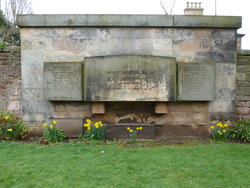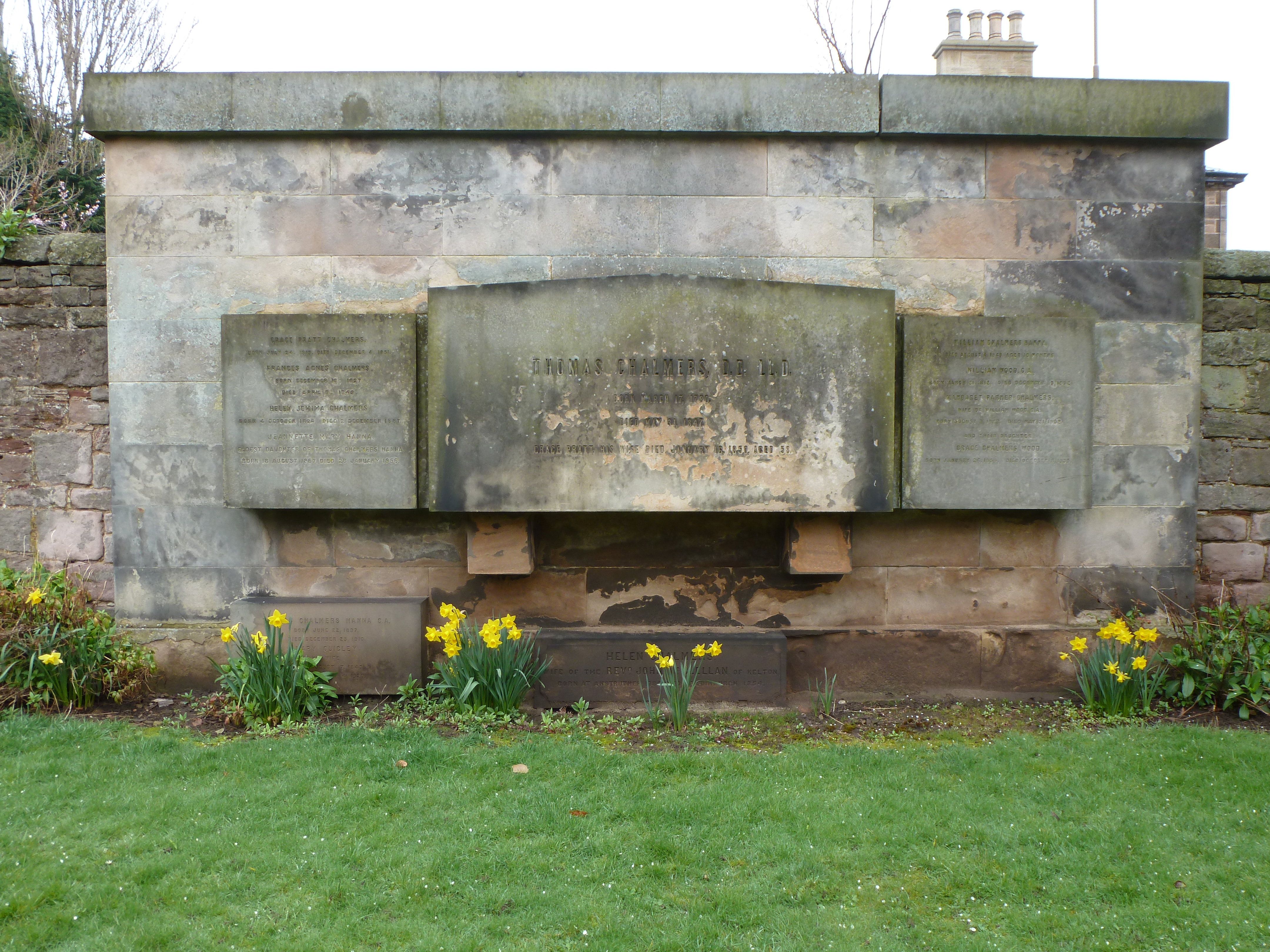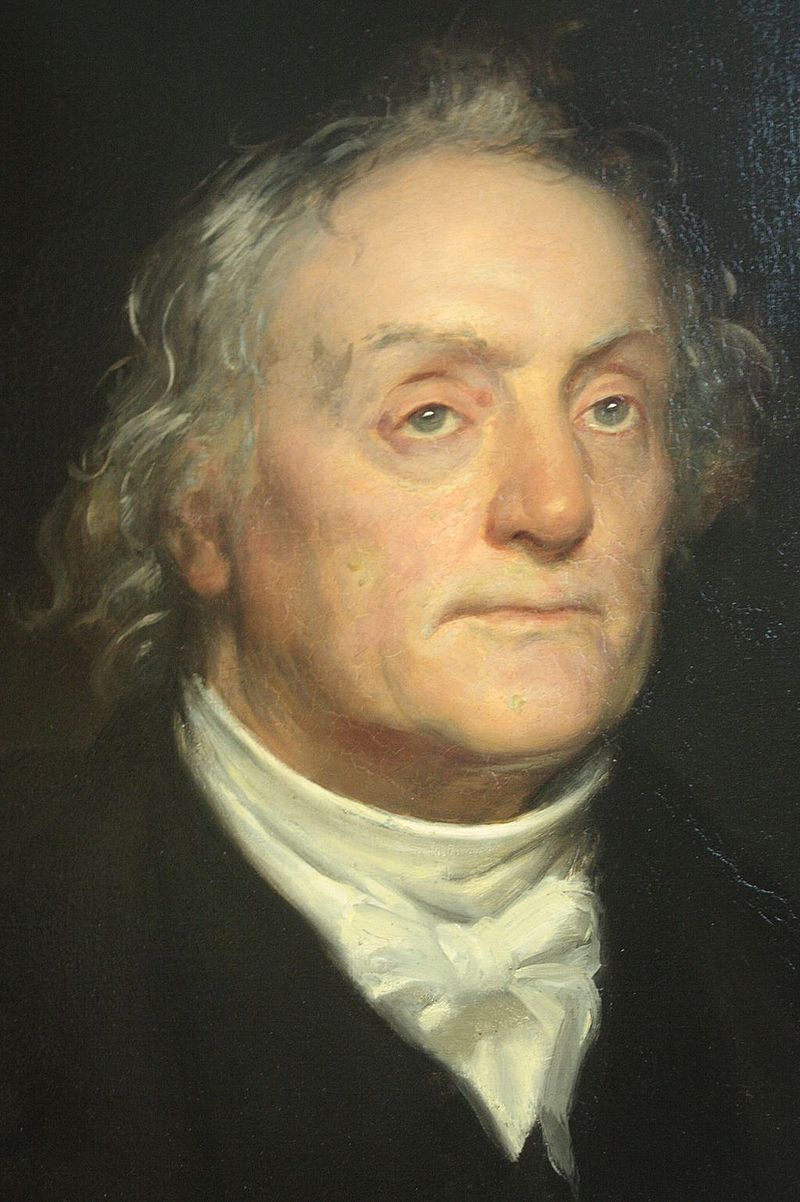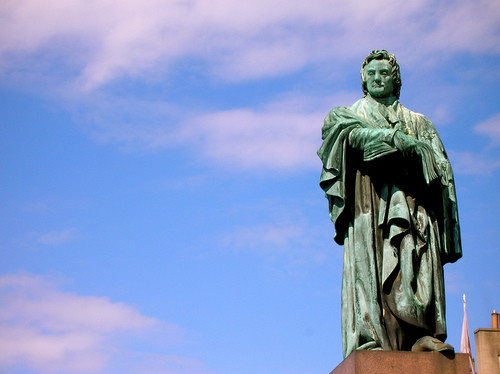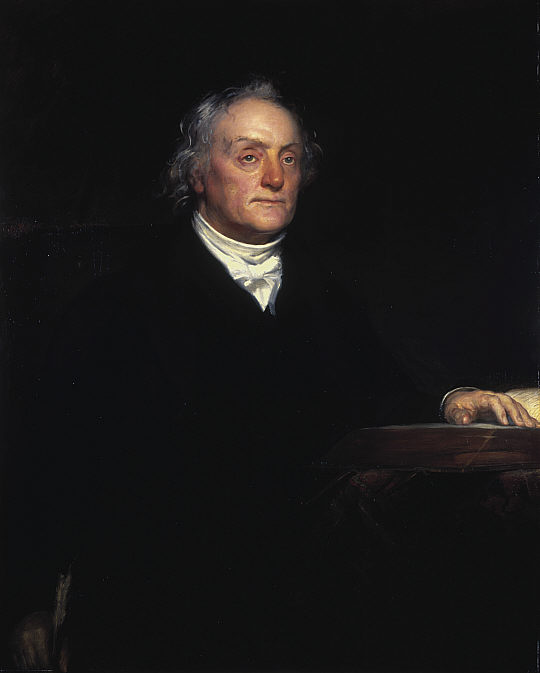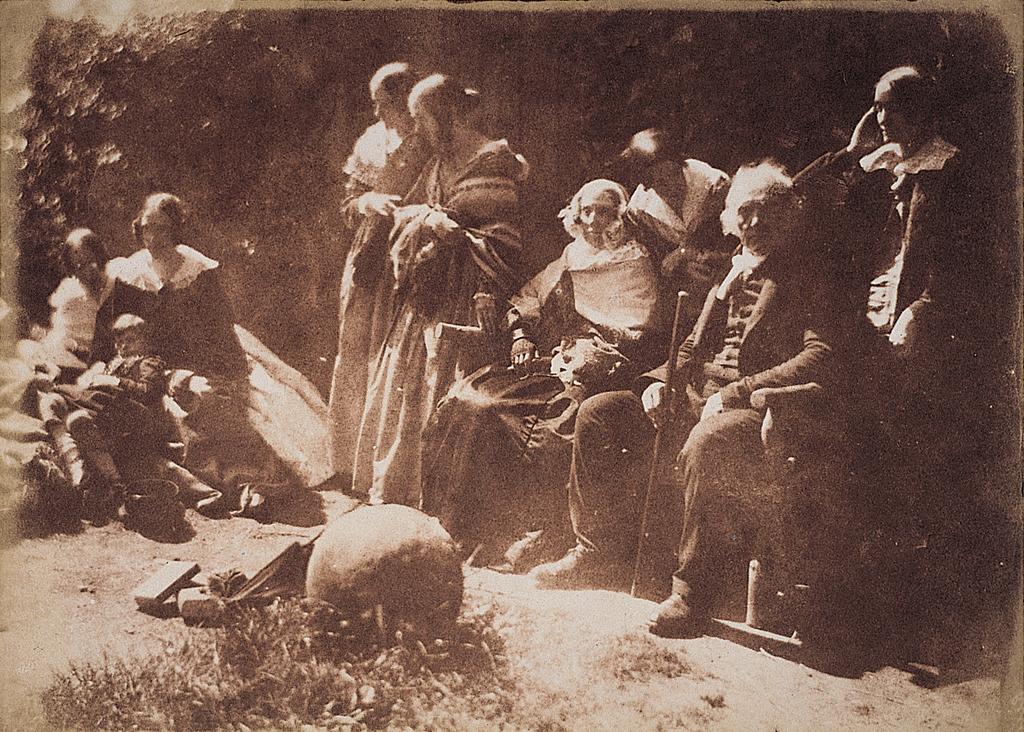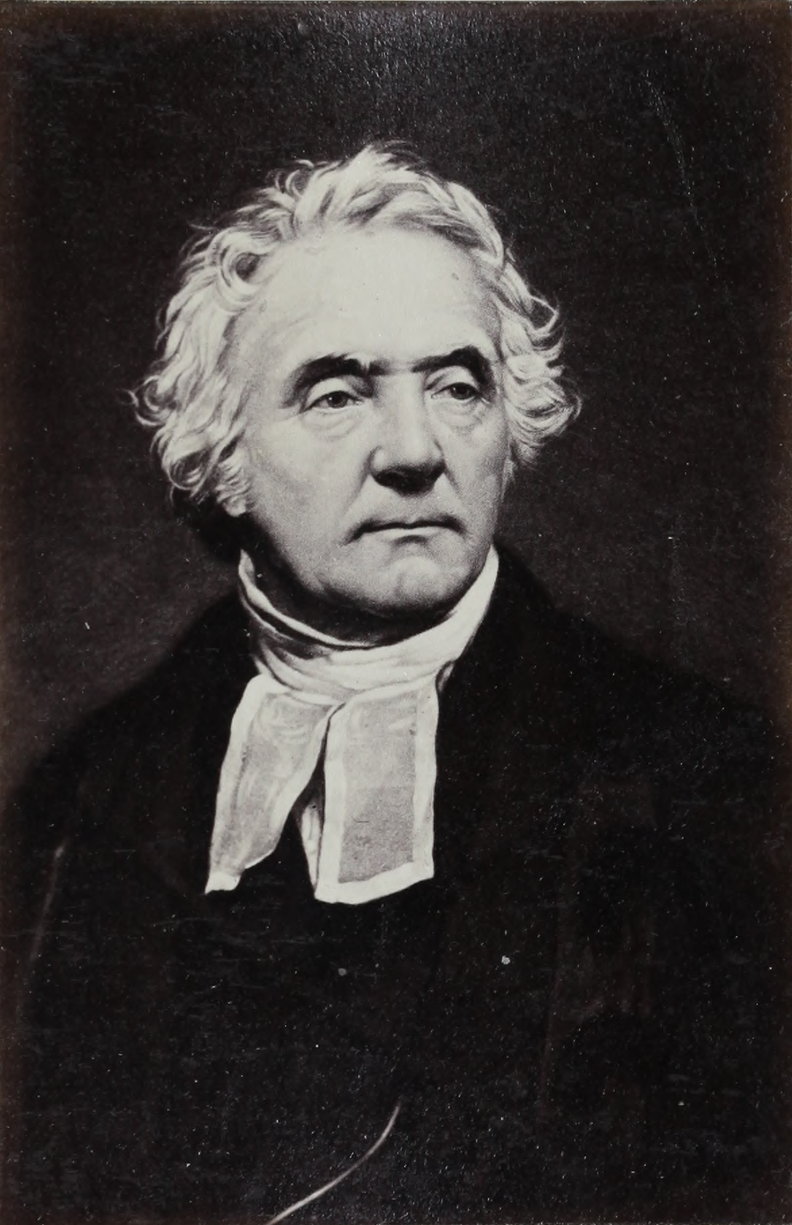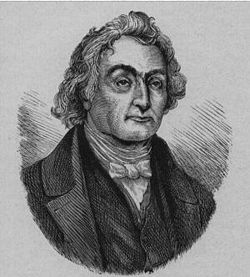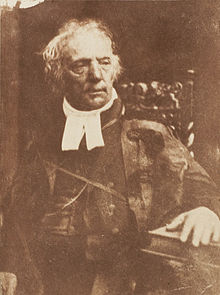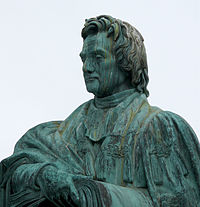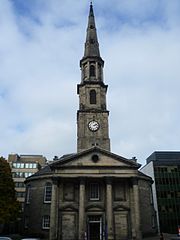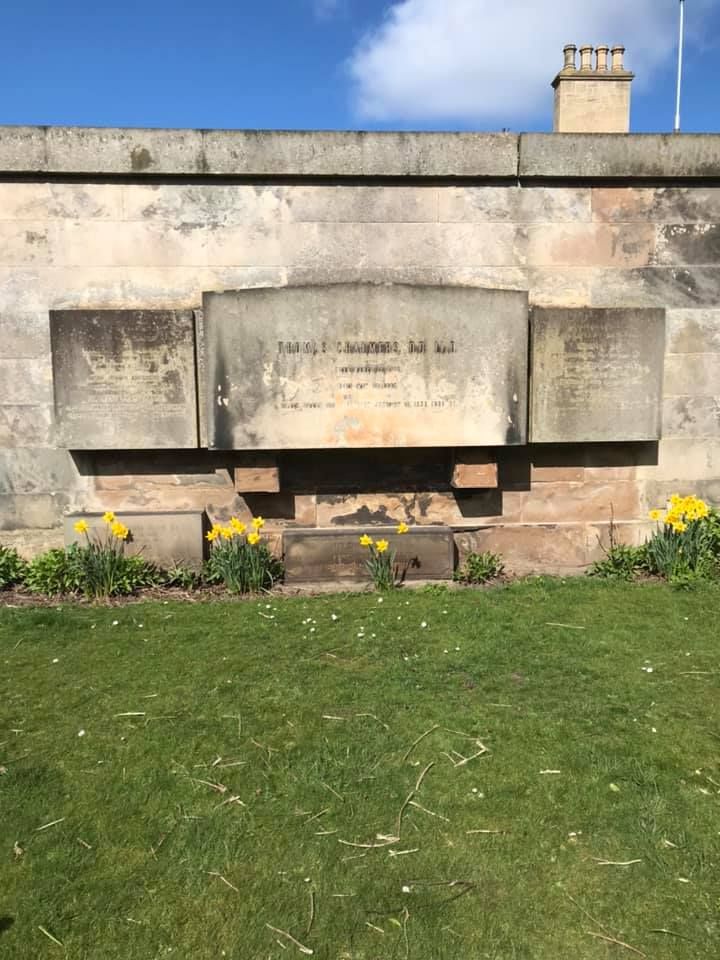Thomas Chalmers was born in Fife on March 17, 1780. While attending the University of St. Andrews, he was drawn both to the study of mathematics and science and to a clerical vocation. After Presbyterian ordination in 1803, he was a successful preacher and instructor. In his late 20s he became aroused to evangelical fervor; for the first time he was struck by his own incorrigible depravity, the imminence of death, and the promise of salvation through faith in Christ. This position was characteristic of the intellectually simple, scripturally bound, evangelical awakening typical of many of his generation. Chalmers, however, attempted to broaden evangelicalism by reconciling its zeal with secular ethics, science, and philosophy and with concern for social and economic issues.
In this spirit Chalmers delivered his "Astronomical Lectures" and preached to large congregations of the educated and well-to-do from his pulpit in Glasgow, where he became minister in 1816. Four years later he took a new parish in the poorest section of the city. By reviving the methods of personal visitation and private, church-directed charity, he provided relief for the poor while drastically reducing expenditure.
In 1823 Chalmers became professor of moral philosophy at St. Andrews. From 1828 to 1843 he was professor of theology at the University of Edinburgh, and during this period he wrote many of his 34 volumes of published works. But more important was his leadership of the reformers in the crisis over patronage in the Scottish Church. The issue involved the right of lay proprietors to appoint clergymen over Scottish congregations. This practice had been imposed by British law in 1712 and reinforced through the next century by the domination of "moderate" clerics in the national church.
At the annual Presbyterian General Assembly in 1832, with Chalmers as moderator, a proposal to change the patronage system failed. Finally, in May 1843, Chalmers regretfully led the famous secession of 470 ministers, who then began the Free Church of Scotland. As the first moderator, Chalmers raised substantial sums to finance the building of hundreds of new churches for the schismatics. From 1843 to 1847 he also served as principal of the Free Church's New College. Chalmers died suddenly on May 31, 1847. Death
On 28 May 1847 Chalmers returned to his house at Morningside, near Edinburgh, from a journey to London on the subject of national education. On the following day (Saturday) he was employed in preparing a report to the General Assembly of the Free Church, then sitting. On Sunday, the 30th, he continued in his usual health and spirits, and retired to rest with the intention of rising at an early hour to finish his report. The next morning he did not make his appearance, and he was discovered lying dead in bed.[2]
Chalmers was interred in the Grange Cemetery. A large crowd of persons of all denominations accompanied his remains to the grave. It is said that half the population of Edinburgh attended his funeral. Parliament later reversed the offensive act of 1712, and ultimately the Free and Established Churches were reunited.
Thomas Chalmers was born in Fife on March 17, 1780. While attending the University of St. Andrews, he was drawn both to the study of mathematics and science and to a clerical vocation. After Presbyterian ordination in 1803, he was a successful preacher and instructor. In his late 20s he became aroused to evangelical fervor; for the first time he was struck by his own incorrigible depravity, the imminence of death, and the promise of salvation through faith in Christ. This position was characteristic of the intellectually simple, scripturally bound, evangelical awakening typical of many of his generation. Chalmers, however, attempted to broaden evangelicalism by reconciling its zeal with secular ethics, science, and philosophy and with concern for social and economic issues.
In this spirit Chalmers delivered his "Astronomical Lectures" and preached to large congregations of the educated and well-to-do from his pulpit in Glasgow, where he became minister in 1816. Four years later he took a new parish in the poorest section of the city. By reviving the methods of personal visitation and private, church-directed charity, he provided relief for the poor while drastically reducing expenditure.
In 1823 Chalmers became professor of moral philosophy at St. Andrews. From 1828 to 1843 he was professor of theology at the University of Edinburgh, and during this period he wrote many of his 34 volumes of published works. But more important was his leadership of the reformers in the crisis over patronage in the Scottish Church. The issue involved the right of lay proprietors to appoint clergymen over Scottish congregations. This practice had been imposed by British law in 1712 and reinforced through the next century by the domination of "moderate" clerics in the national church.
At the annual Presbyterian General Assembly in 1832, with Chalmers as moderator, a proposal to change the patronage system failed. Finally, in May 1843, Chalmers regretfully led the famous secession of 470 ministers, who then began the Free Church of Scotland. As the first moderator, Chalmers raised substantial sums to finance the building of hundreds of new churches for the schismatics. From 1843 to 1847 he also served as principal of the Free Church's New College. Chalmers died suddenly on May 31, 1847. Death
On 28 May 1847 Chalmers returned to his house at Morningside, near Edinburgh, from a journey to London on the subject of national education. On the following day (Saturday) he was employed in preparing a report to the General Assembly of the Free Church, then sitting. On Sunday, the 30th, he continued in his usual health and spirits, and retired to rest with the intention of rising at an early hour to finish his report. The next morning he did not make his appearance, and he was discovered lying dead in bed.[2]
Chalmers was interred in the Grange Cemetery. A large crowd of persons of all denominations accompanied his remains to the grave. It is said that half the population of Edinburgh attended his funeral. Parliament later reversed the offensive act of 1712, and ultimately the Free and Established Churches were reunited.
Inscription
THOMAS CHALMERS DD LLD, born March 17 1780, died May 31 1847;
GRACE PRATT his wife died January 16 1850 aged 58.
